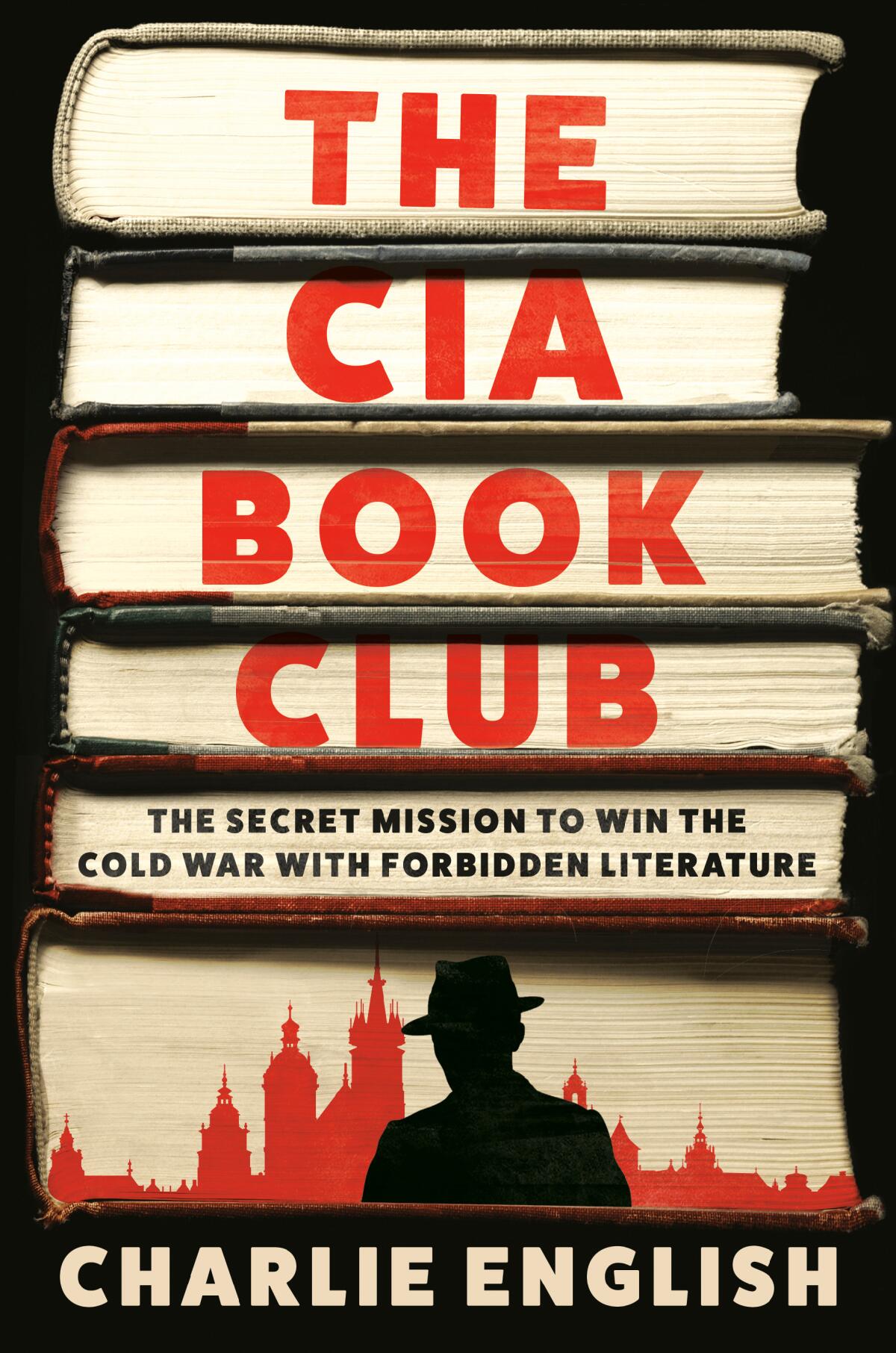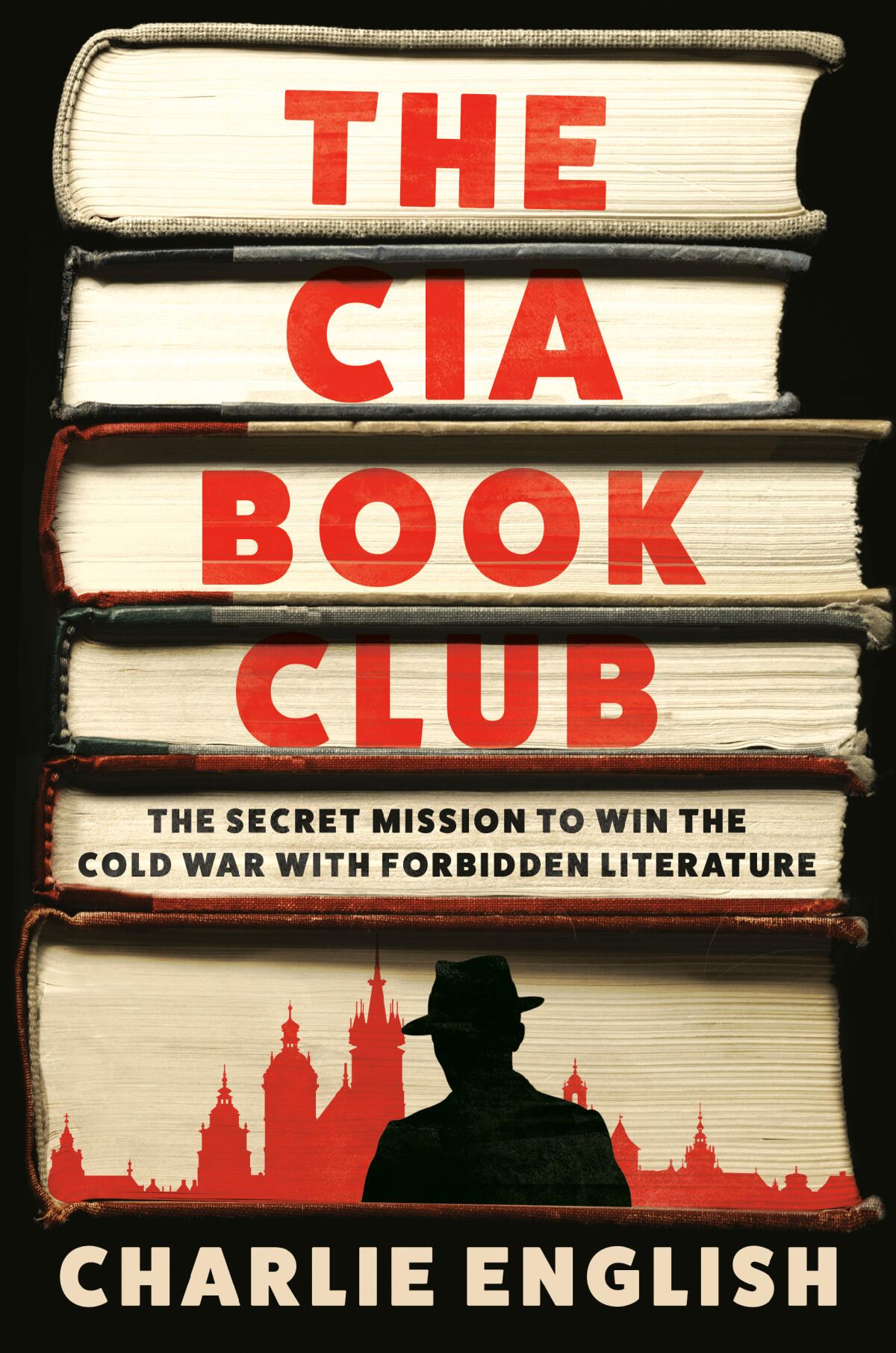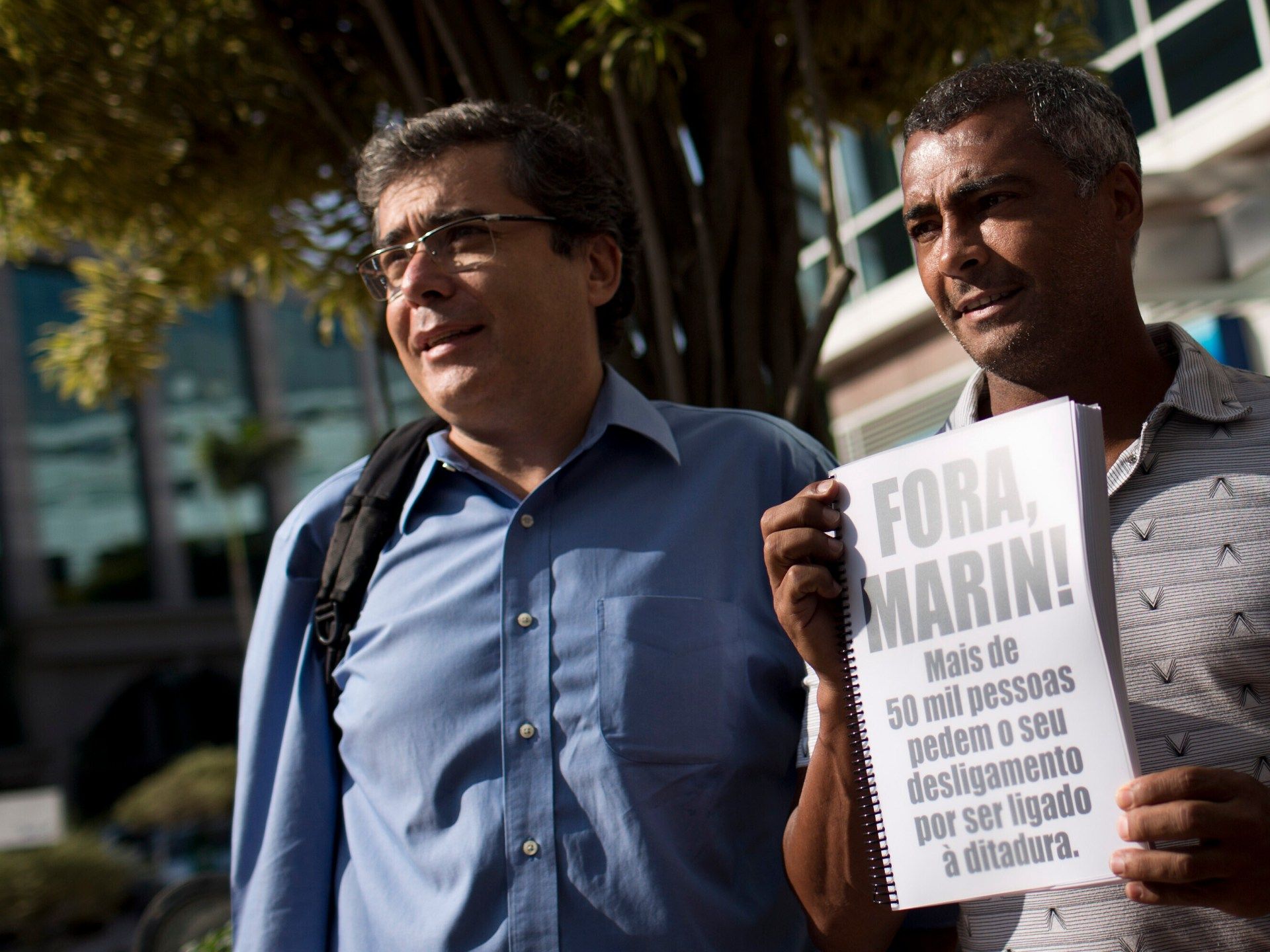‘CIA Book Club’ review: A gripping look at Cold War subterfuge
Book Review
The CIA Book Club: The Secret Mission to Win the Cold War With Forbidden Literature
By Charlie English
Random House: 384 pages, $35
If you buy books linked on our site, The Times may earn a commission from Bookshop.org, whose fees support independent bookstores.
Charlie English begins “The CIA Book Club” by describing a 1970s technical manual: a dull cover, as uninviting as anything. A book that practically begs you to put it back on the shelf and move on.
Which was exactly the point. Secreted inside the technobabble dust jacket was a Polish-language copy of George Orwell’s “1984,” the boring cover a deliberate misdirection to deter prying eyes. The false front is a bit of skullduggery that harks back to a world where conspiracy to escape detection was a part of everyday life. A world where literature could be revolutionary, “a reservoir of freedom.”
English, formerly a journalist for the Guardian, specializes in writing about how art and literature are used to fight extremism: “The Storied City,” published in the U.K. as “The Book Smugglers of Timbuktu,” spotlights librarians who heroically saved priceless manuscripts of West African history from al Qaeda; “The Gallery of Miracles and Madness” traces the “insane” artists who influenced the early 20th century Modernism movement and Hitler’s attempts to stamp out their art — and them. His new book takes us through five decades of Poles fighting Soviet domination and Communist propaganda with a potent weapon: literature.
Even from the vantage point of the 21st century, when we know what became of the USSR, English’s book reads like a thriller. There are CIA suits, secret police, faceless bureaucrats and backstabbing traitors lurking in these pages. We face tensions between paramilitary cowboys and prudent intellectuals, between paper-pushing accountants and survivors saving a culture. While reading, I worried about figures like Helena Łuczywo, who edited and published an underground newspaper, and Mirosław Chojecki, who smuggled books and printing supplies into Poland. As with the best spy novels, we know the good guy is going to win while reading “The CIA Book Club,” but how English gets us there is exciting.

His best chapters follow the protests in the Gdańsk shipyards that led to the Solidarity trade union. A better future shimmers on the page when Lech Wałęsa climbs over a fence as an unemployed electrician, taps someone on the shoulder and becomes “the face of the Polish revolution.” (Ten years later, he became president of Poland, too.) In the violent crackdown that followed the momentary blossoming of freedom after Gdańsk, we feel the heartbreak and fear of the people. We hope again when fighters like Łuczywo begin printing a scant newsletter whose “main job was just to exist” and remind people they weren’t alone.
The book is gripping, but it doesn’t quite deliver on its subtitled promise to “win the Cold War with forbidden literature.” The story English has researched and put together focuses almost entirely on Poland’s fight for freedom from the USSR. Of course, the CIA’s funding of smuggling illicit literature into the Eastern Bloc is an important story, and a nearly forgotten one. As English mentions in the epilogue, while “the book program’s latter-day budget stood at around $2 million to $4 million annually, [the Afghan operation] by 1987 was running at a cost of $700 million a year, taking up 80 percent of the overseas budget of the clandestine service.” Apparently, an operation costing nearly 200 times the other deserves nearly 200 times the credit as well. The result is that the power of inexpensive books was swept under the rug in favor of expensive shows of force.
Still, the impressive power of the book club might have been better elucidated if details about its impact in other Eastern Bloc countries were brought into the story. The focus on Poland obscures what was happening in the USSR. English focused on Poland because the country had a long history of underground revolutionary culture; when the USSR turned independent Poland into a client state known as the People’s Republic of Poland, the Poles already knew how to go underground to fight back. The lifestyle doublespeak people used to survive under successive dictatorships in Eastern Europe came a little more easily to Poles, who had practiced it before. When the CIA offered funding, they were ready. Still, it would have been nice to see how “1984” inspired people in Ukraine or Moldova or Kyrgyzstan. If books are an answer to dictatorships — and as strong as “an organization packed with spooks and paramilitaries who fought in warzones” — it would be inspiring to see more of that. Hopefully a sequel is in the planning stages.
What this book does incredibly well is document an oral history of Polish resistance that has, until now, only been told in bits and pieces. There is archival research in here, but it is in the nature of dictatorships to destroy evidence of their crimes. Fortunately, English talked to many of the people who were there, publishing underground newspapers and smuggling in illicit literature. What information has been declassified — and much of it hasn’t been — bolsters the memories of survivors.
One of the most interesting details of “Book Club” is not that books inspired a nation but which books did. Philosophical tracts and political satires were smuggled in, of course; Poland received its share of “Animal Farm” and “1984” and “Brave New World.” But just as important to the Poles living under Soviet dictatorship were art books, fashion magazines, religious texts, lighthearted novels and regular newspapers. More influential than anti-Communist diatribes were the reminders that there was a world outside Soviet propaganda; each book read was a bid to avoid brainwashing, to not become a tool of the state.
This literary history is a prescient one. As book bans increase around the United States and peaceful protests are met with state violence here in Los Angeles, a tale of when stories saved the day is inherently hopeful. This book is a reminder that words are powerful and that stories matter. Sometimes the most rebellious thing one can do is read a book.
Castellanos Clark, a writer and historian in Los Angeles, is the author of “Unruly Figures: Twenty Tales of Rebels, Rulebreakers, and Revolutionaries You’ve (Probably) Never Heard Of.”

